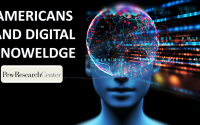
Virtual Thesis Defense
Ph.D. students defending their dissertations must do so remotely right now. Could videoconference defenses become the new normal? Inside Higher Ed
Premier Portal for Professionals Since 1995, Covering Technology-Based Education

Ph.D. students defending their dissertations must do so remotely right now. Could videoconference defenses become the new normal? Inside Higher Ed

We examined the adoption of online teaching strategies by faculty members at a large midwestern research university who participated in a year-long learning community. The purpose of this study was twofold: 1) to investigate changes in teaching approaches resulting from a year-long e-learning professional development initiative; and 2) to understand the perceptions of factors that […]

Peer review learning activities have been deemed an effective way to improve writing quality among graduate students. However, there was a paucity of extant literature that examined technology-based peer review learning activities. To address this gap, the present study investigated how technology tool usage affected the instructional design of peer review learning activities. A qualitative […]

Recently, colleges have begun to employ online learning courses for multiple participants. Consequently, students need to master online learning skills. To improve this teaching model, this study investigated the considerations and teaching patterns of two lecturers in the same multiparticipant online courses: 102 students in one course and 70 students in the second. The students’ […]

Learning resources that are used in the education of university students are often available online. The nature of new technologies causes an interweaving of formal and informal learning, with the result that a more active role is expected from students with regard to the use of ICT for their learning. The variety of online learning […]

Although distance education continues to expand in postsecondary institutions, little research regarding distance education methodology in applied graduate psychology programs is currently available. This exploratory study examined technology, resources, and instructional components in graduate school psychology distance courses. The results indicated that Blackboard and Skype were the most frequently utilized technology components in both online […]
This article identifies factors that help Generation Z students succeed in a fully online learning environment for communication skills. Out of a diverse number of learner characteristics, the learners’ home institutions significantly impacted their preference for instructional delivery modality. The participants described a flexible schedule and instant access as the best features of a fully online […]

Virtual reality and virtual worlds (VWs) are powerful technologies currently helping to define the digital world. These technologies are characterized by user control, immersion, and a sense of presence or “being there.” They have been examined from a variety of theoretical perspectives, technical and user variables, and psychological approaches. The purpose of this study was […]

A majority of U.S. adults can answer fewer than half the questions correctly on a digital knowledge quiz, and many struggle with certain cybersecurity and privacy questions Pew Research Center